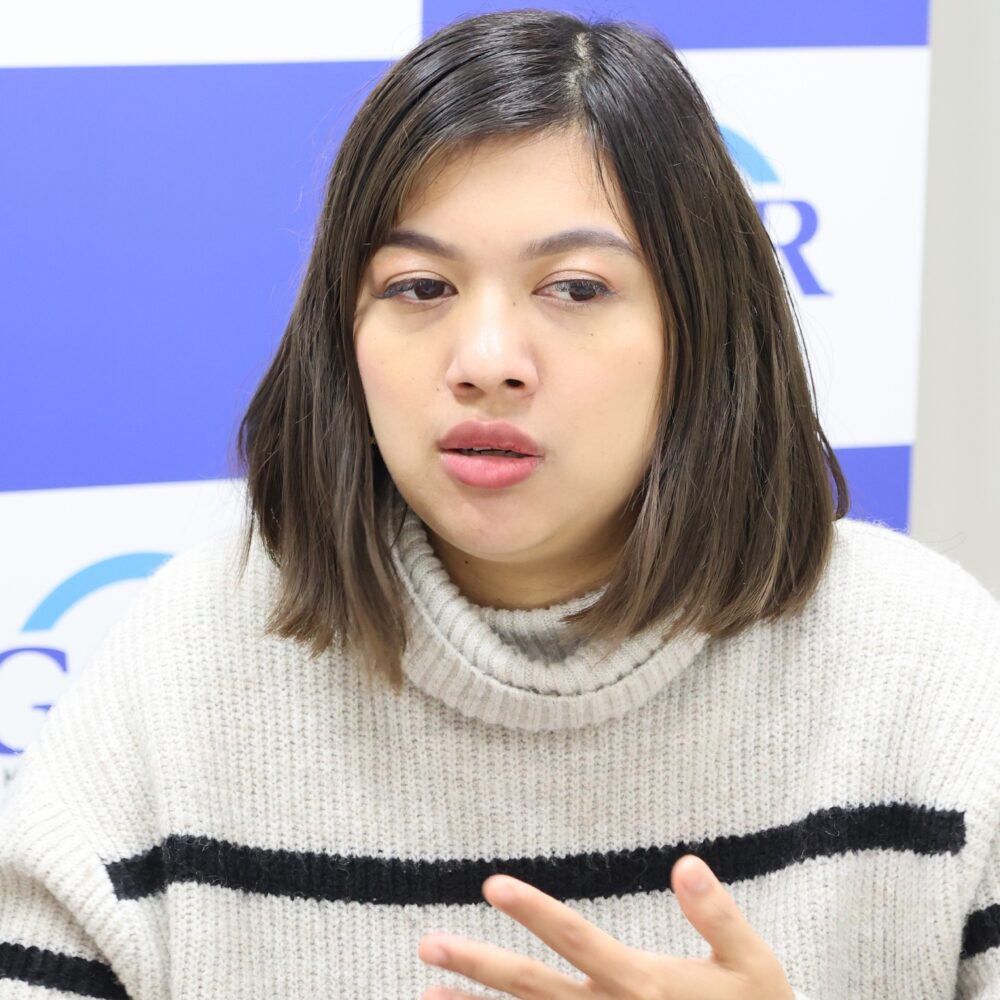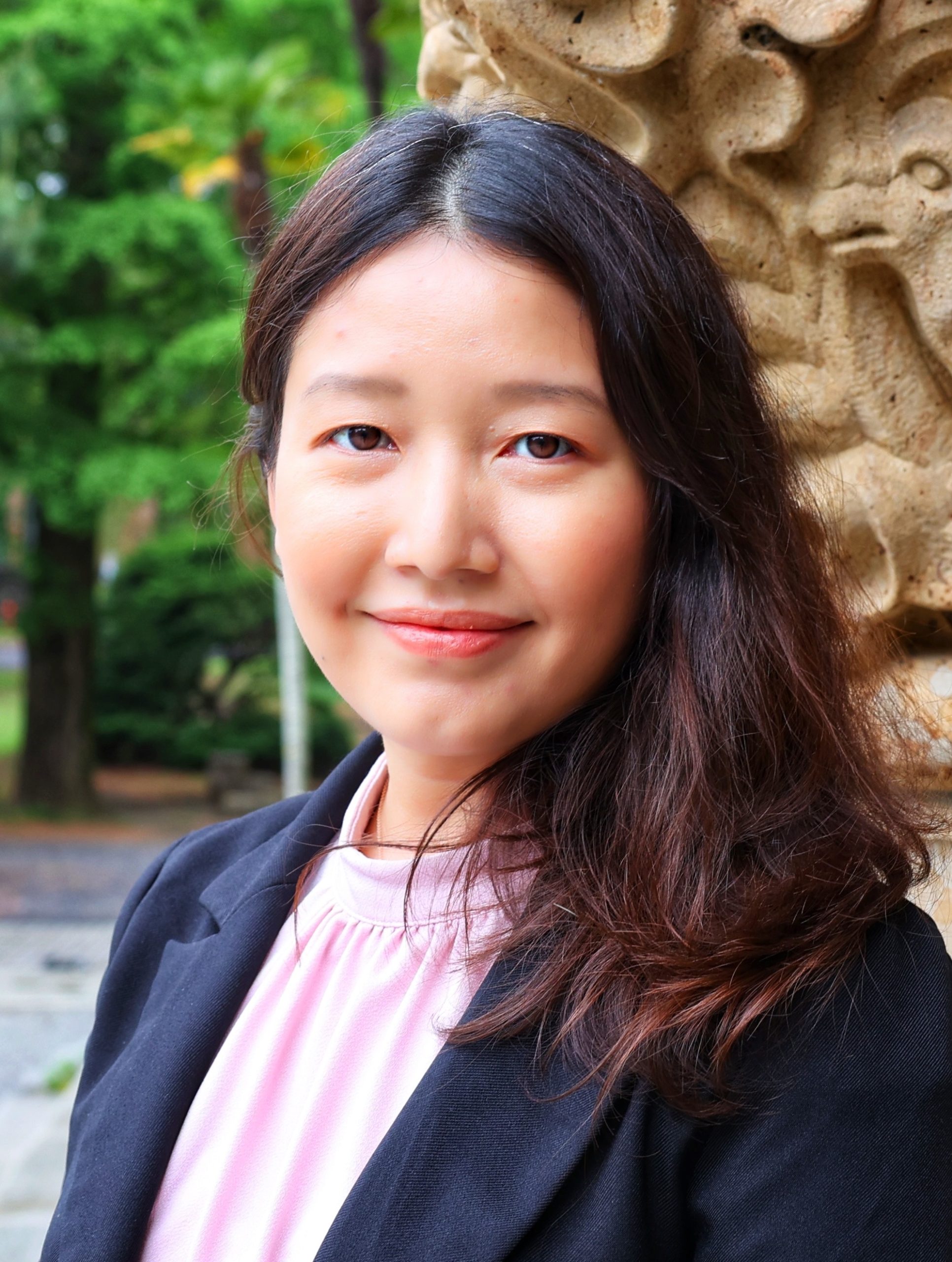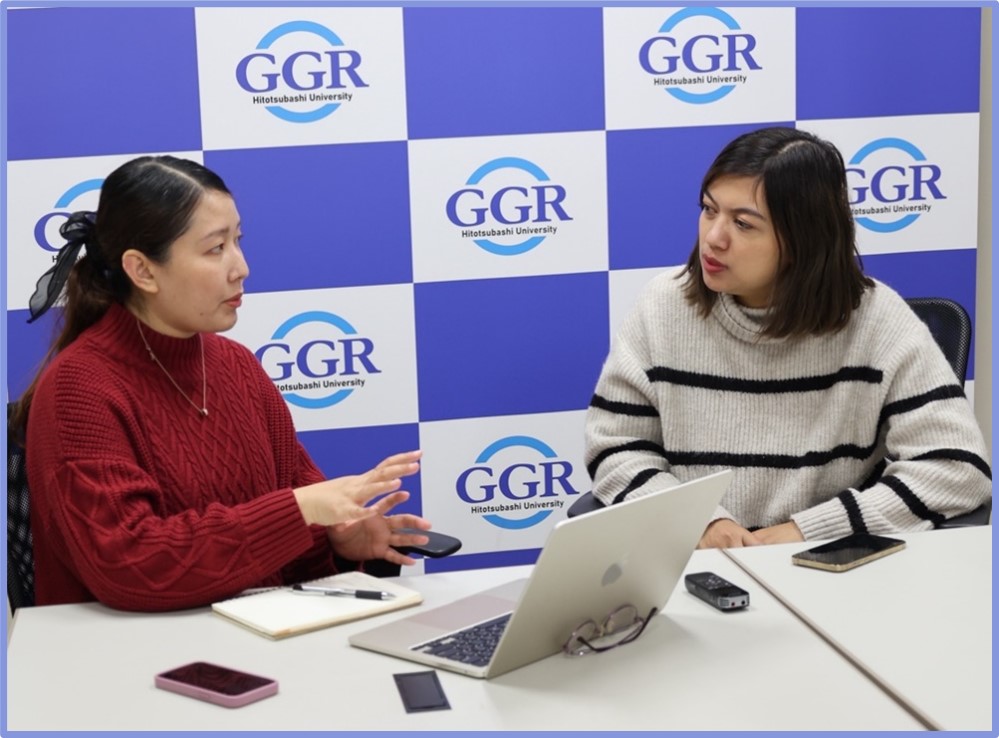

Motherhood in Activism:
A Dialogue with a Myanmar Activist Living in Japan
Interviewer and writer: Hnin Htet Htet Aung
(Master’s student, School of International and Public Policy, Hitotsubashi University)
March 13, 2024
 Swe Set Aye, a member of the Milk Tea Alliance Japan, actively addresses the challenges and opportunities encountered by Myanmar activists currently living in Japan. Originating from the Yangon region and belonging to the Bama ethnic group, she also offers profound insights into the unique experiences of the Myanmar community in Japan.
Swe Set Aye, a member of the Milk Tea Alliance Japan, actively addresses the challenges and opportunities encountered by Myanmar activists currently living in Japan. Originating from the Yangon region and belonging to the Bama ethnic group, she also offers profound insights into the unique experiences of the Myanmar community in Japan.
Swe arrived in Japan at the age of 19 with a limited command of the Japanese language and no prior involvement in political activities. Through her unwavering determination, she successfully gained admission to a business college in Japan. “The turning point when I embraced the title of ‘activist’ occurred recently, in the aftermath of the 2021 Myanmar military coup,” Swe said. She recounted the military junta crushed her dreams, acknowledging that her individual struggles pale in comparison to the sacrifices made by those who laid down their lives for the revolution. At that moment, her eyes seemed to carry the weight of a hurtful past, revealing a steadfast sense of resistance to injustice.
In addition to being an activist, she has the role of a mother to her daughter. “It wasn’t easy being part of events while pregnant. Again, after giving birth, my daughter became my constant companion. I had no choice but to bring her along to various events, making her my reliable comrade. I should not forget to mention the role of my mother and husband who strongly support me to be an activist even while my other relatives condemn my involvement in the revolutionary movement.” She went on to share, “My heart is broken whenever I receive news about the pregnant women, mothers and innocent who were brutally arrested and killed by the unlawful military junta.”
 To unite Myanmar residents in Japan, social media, especially Facebook, has emerged as the primary platform for sharing timely information about current movements. Swe emphasized the pivotal role of the Myanmar community in the revolution, a factor that inspired her to become an activist. “Upon learning about the distressing news of the military coup in Myanmar, we swiftly rallied together by disseminating announcements on Facebook within the Myanmar residents in Japan. This led to the establishment of the Japan Myanmar Help Network, an independent platform dedicated to sharing information about the events unfolding in Myanmar and the activities of the Myanmar community in Japan. At present, the Myanmar community in Japan is actively engaged in a signature campaign, collecting signatures not only from Myanmar residents but also from Japanese individuals. The objective is to petition the Japanese government to exert pressure on the Myanmar military junta, to legitimatize the National Unity Government (NUG), and to directly provide humanitarian assistance to the NUG,” she elaborated.
To unite Myanmar residents in Japan, social media, especially Facebook, has emerged as the primary platform for sharing timely information about current movements. Swe emphasized the pivotal role of the Myanmar community in the revolution, a factor that inspired her to become an activist. “Upon learning about the distressing news of the military coup in Myanmar, we swiftly rallied together by disseminating announcements on Facebook within the Myanmar residents in Japan. This led to the establishment of the Japan Myanmar Help Network, an independent platform dedicated to sharing information about the events unfolding in Myanmar and the activities of the Myanmar community in Japan. At present, the Myanmar community in Japan is actively engaged in a signature campaign, collecting signatures not only from Myanmar residents but also from Japanese individuals. The objective is to petition the Japanese government to exert pressure on the Myanmar military junta, to legitimatize the National Unity Government (NUG), and to directly provide humanitarian assistance to the NUG,” she elaborated.
Myanmar diasporas can be found in various prefectures of Japan, demonstrating a strong commitment to democracy and human rights, while actively resisting the military coup in Myanmar. Swe explained that “Approximately 50 revolutionary groups of Myanmar people exist in Japan, representing various ethnicities and regions, fostering connections with individuals on the ground in Myanmar and along the Thai-Myanmar border. We maintain ties with each group to make cultural events and protests happen.” While actively participating in movements alongside Myanmar diaspora groups, she has also joined forces with Hong Kong activists, collectively contributing to the broader scope of global movements.
Speaking about these collective engagements, Swe emphasized, “It presents a significant opportunity to establish connections among activists from Japan, Hong Kong, and Thailand. This collaborative exchange allows us to learn from each other and unite our efforts in the fight for democracy, human rights, and against dictators.”
 The military coup has not only precipitated physical challenges but has also given rise to mental crises within the Myanmar diaspora in Japan. Swe recounts her firsthand experience handling the issues confronting the Myanmar diaspora in Japan while actively assuming an activist role in local movements. “As I have been mentioned as one of the contacts for revolutionary moments, many members of the Myanmar diaspora reach out to me, presenting various issues such as disinformation and visa problems. They even approach me seeking advice on problems affected by the military coup. Therefore, it is crucial for me to maintain not only physical but also mental well-being to support others and revolutionary movements. I aim to demonstrate strength so that I can effectively assist them and contribute to the movements,” she expressed with a deep sigh.
The military coup has not only precipitated physical challenges but has also given rise to mental crises within the Myanmar diaspora in Japan. Swe recounts her firsthand experience handling the issues confronting the Myanmar diaspora in Japan while actively assuming an activist role in local movements. “As I have been mentioned as one of the contacts for revolutionary moments, many members of the Myanmar diaspora reach out to me, presenting various issues such as disinformation and visa problems. They even approach me seeking advice on problems affected by the military coup. Therefore, it is crucial for me to maintain not only physical but also mental well-being to support others and revolutionary movements. I aim to demonstrate strength so that I can effectively assist them and contribute to the movements,” she expressed with a deep sigh.
As the interview reached its conclusion, she candidly conveyed the emotional toll of envisioning her future, especially given the difficult circumstances in Myanmar. In the closing moments, she shared, “The struggles we endure in Japan, fundraising in front of stations every weekend with my fellow activists, evoke a profound sense of sadness when I contemplate our anticipated future, especially in light of the ongoing situation in Myanmar.”
| We, the Myanmar diaspora in Japan, are impacted by the ongoing events in Myanmar, including a humanitarian crisis and economic downturn. At this point, I would like to reiterate our requests to the Japanese government to recognize the National Unity Government (NUG), to exert pressure on the Myanmar military junta by stopping the flow of Official Development Assistance (ODA) support to Myanmar and by imposing sanctions on military businesses, particularly those associated with the Myanmar military junta. |
She also conveys a message to the Japanese government and its people: “As we all know, it has been over three years since the military staged the coup. We, the Myanmar diaspora in Japan, are impacted by the ongoing events in Myanmar, including a humanitarian crisis and economic downturn. At this point, I would like to reiterate our requests to the Japanese government to recognize the National Unity Government (NUG), to exert pressure on the Myanmar military junta by stopping the flow of Official Development Assistance (ODA) support to Myanmar and by imposing sanctions on military businesses, particularly those associated with the Myanmar military junta. I also urge the provision of humanitarian assistance directly to the people of Myanmar.”
Swe Set Aye is a representative of the Japan Myanmar Future Creative Association Working Committee, the NUG Representative Office – Japan. She studied in Japan in 2013, worked for a Japanese company for seven years and is currently involved in a wide range of democracy and aid activities in Myanmar.
